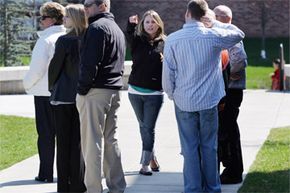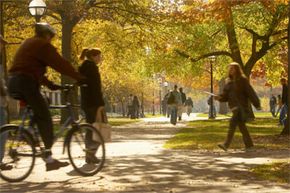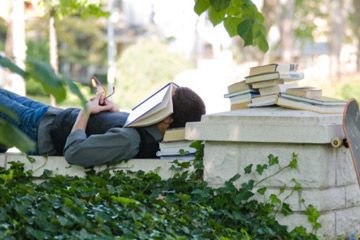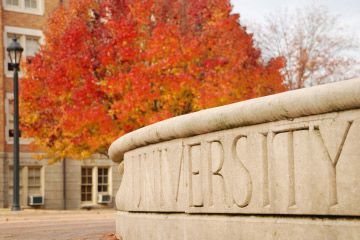Choosing a college is a big deal. It's not just the place where you'll be living for the next four or five years. Your college experience can influence what the rest of your life will be like. For many people, it's where you'll educate yourself, form lifelong friendships, and decide on and make steps toward your career. The course of your life can dramatically differ just by choosing one school over another, so it's not a decision you should take lightly.
With the cost of tuition for four years at a public U.S. university averaging around $30,000, you'll really want to make sure you get the most out of your money [source: CollegeBoard]. Would you buy a car without first taking it for a test drive? Just like any major purchase, choosing a college is an investment in your future. While you'll most likely apply to more than one school, it helps to know more about the schools you're applying to. That's where college visits come in. Going to see several colleges before you send your applications can help you to make a better, more informed decision, just like buying a car.
Advertisement
You don't have to -- and probably won't be able to -- visit every school you plan on applying to. But even if you can't see all the colleges you're interested in, dropping in on a few is an excellent idea. There's a lot you can learn by making college visits that will (hopefully) make your decision much easier. A school might look good on paper, but how is the food? Is the campus safe? Do you feel comfortable there? What does the school have to offer you? So many questions can be answered by taking the time to see a school in person.
So what happens when you visit a college? Is there anything you should look for (and look out for)? And how can you plan ahead to make the most out of your time on campus? Find more about sizing up potential schools in the next sections.
Advertisement




